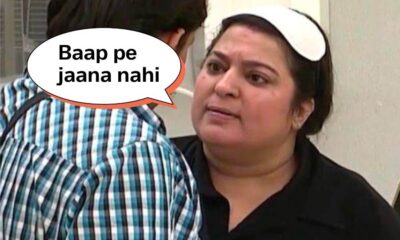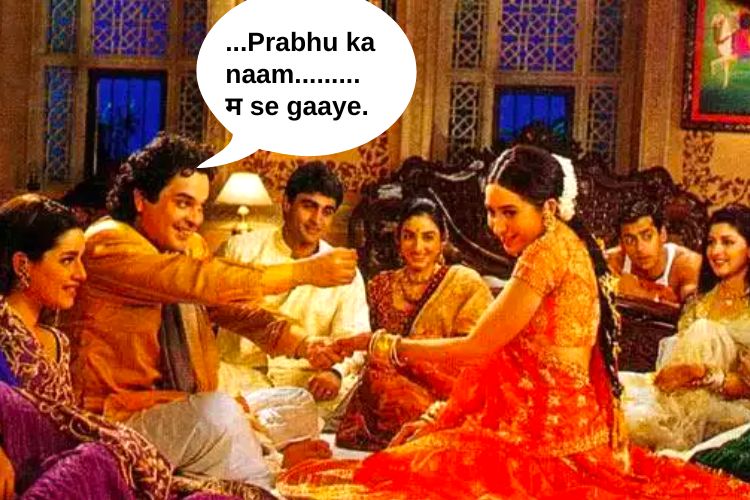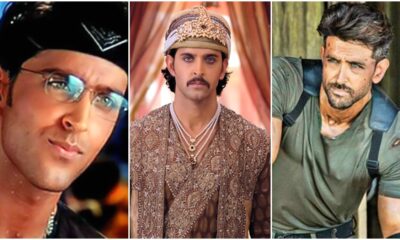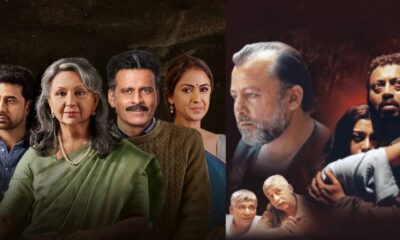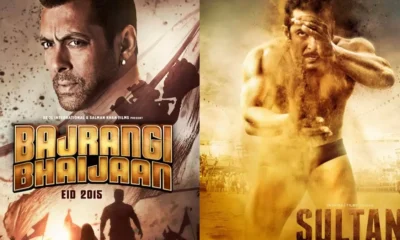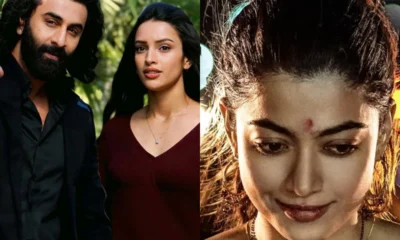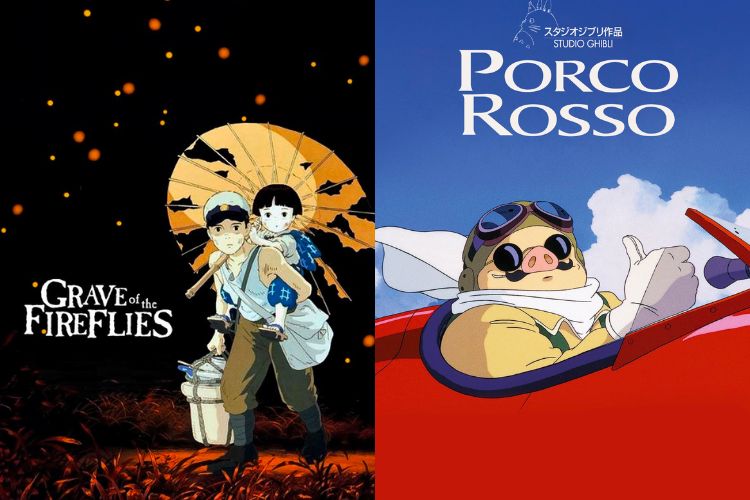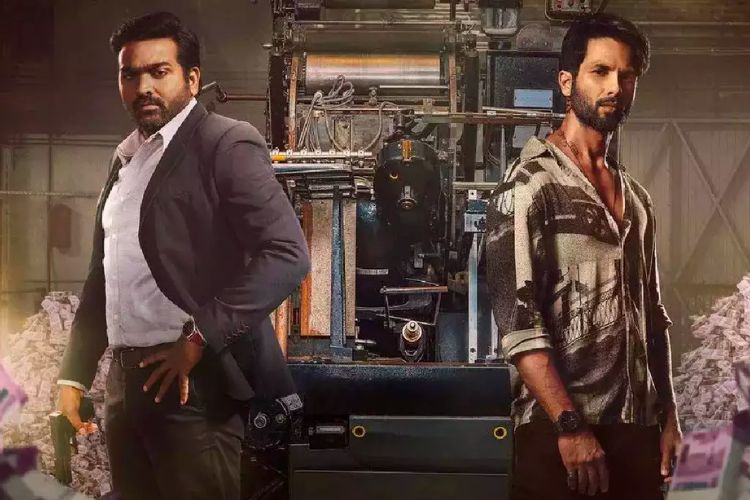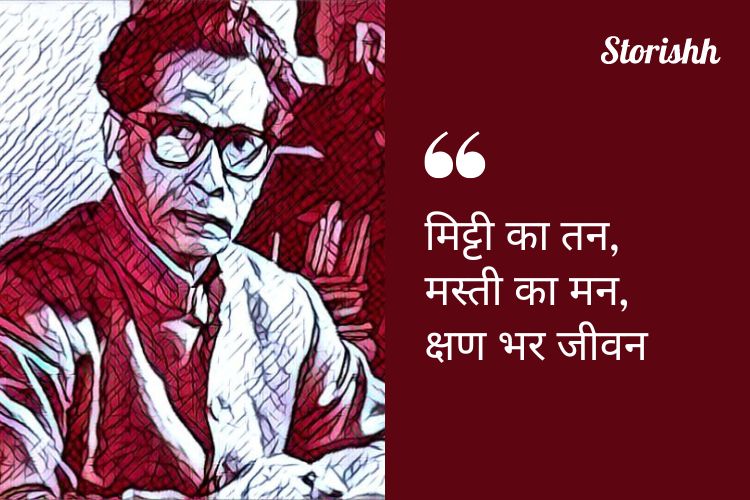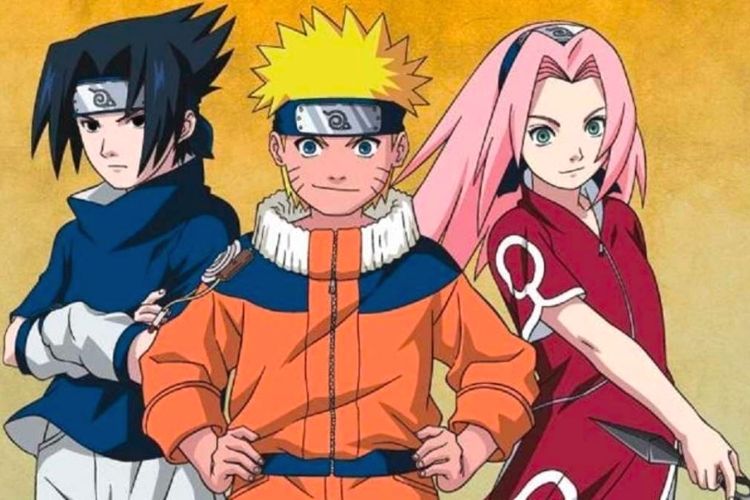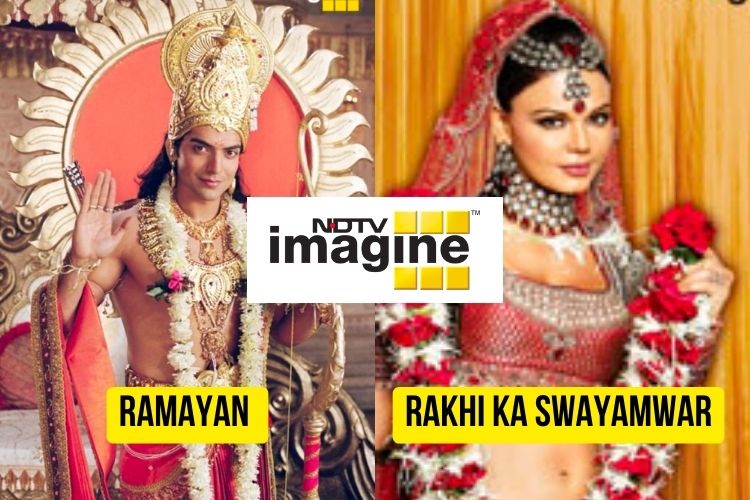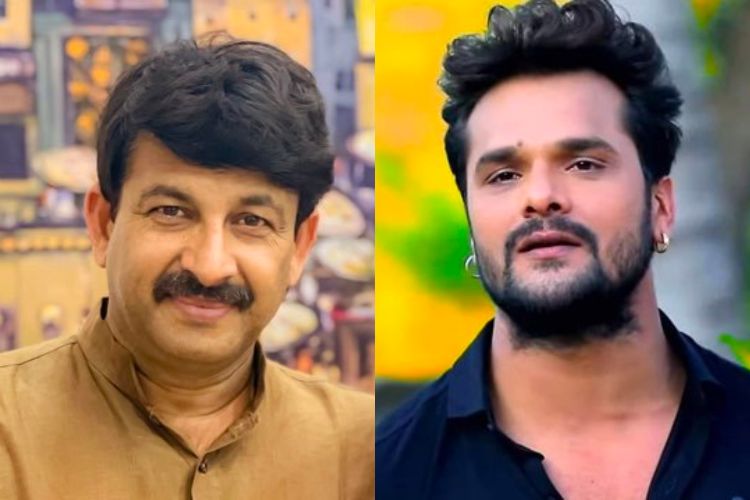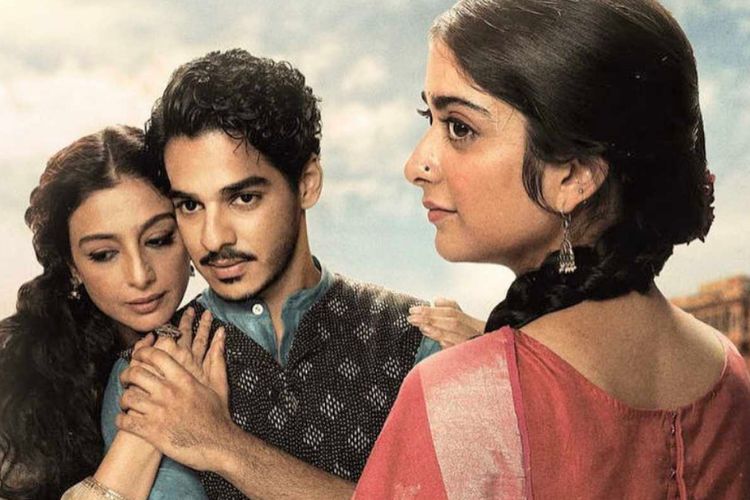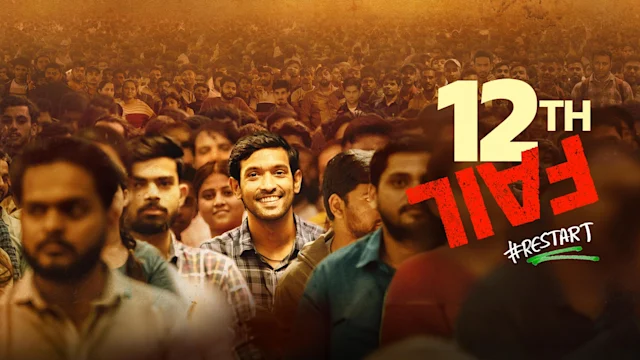
The Most Memorable Dialogues Of Disney+Hotstar’s 12th Fail Movie
The Most Memorable Dialogues Of Disney+Hotstar’s 12th Fail Movie
Vidhu Vinod Chopra’s directorial 12th Fail Movie, starring Vikrant Massey, Medha Shankar, and Anant V Joshi is now streaming on Disney+Hotstar. The 12th Fail movie was one of the best films of the year 2023 and was hugely recognized for its impeccable writing, heart-wrenching performances, and beautiful songs.
But one aspect that often gets lost in the larger scheme of public film discourse is the dialogue of a film. With time, the audiences are getting more tilted towards the box office revenue of a film and it has sadly become the means to analyze a film’s performance and not much attention is paid to the content or the writing of the film.
Today we are going to look at the best dialogues from the 12th Fail Movie and how they elevated the film’s narrative and packed the punch for the ultimate impact that it had on the audiences. The film boasts of a lot of emotional, funny, and motivating dialogues which we can seldom see in the Hindi Film space.
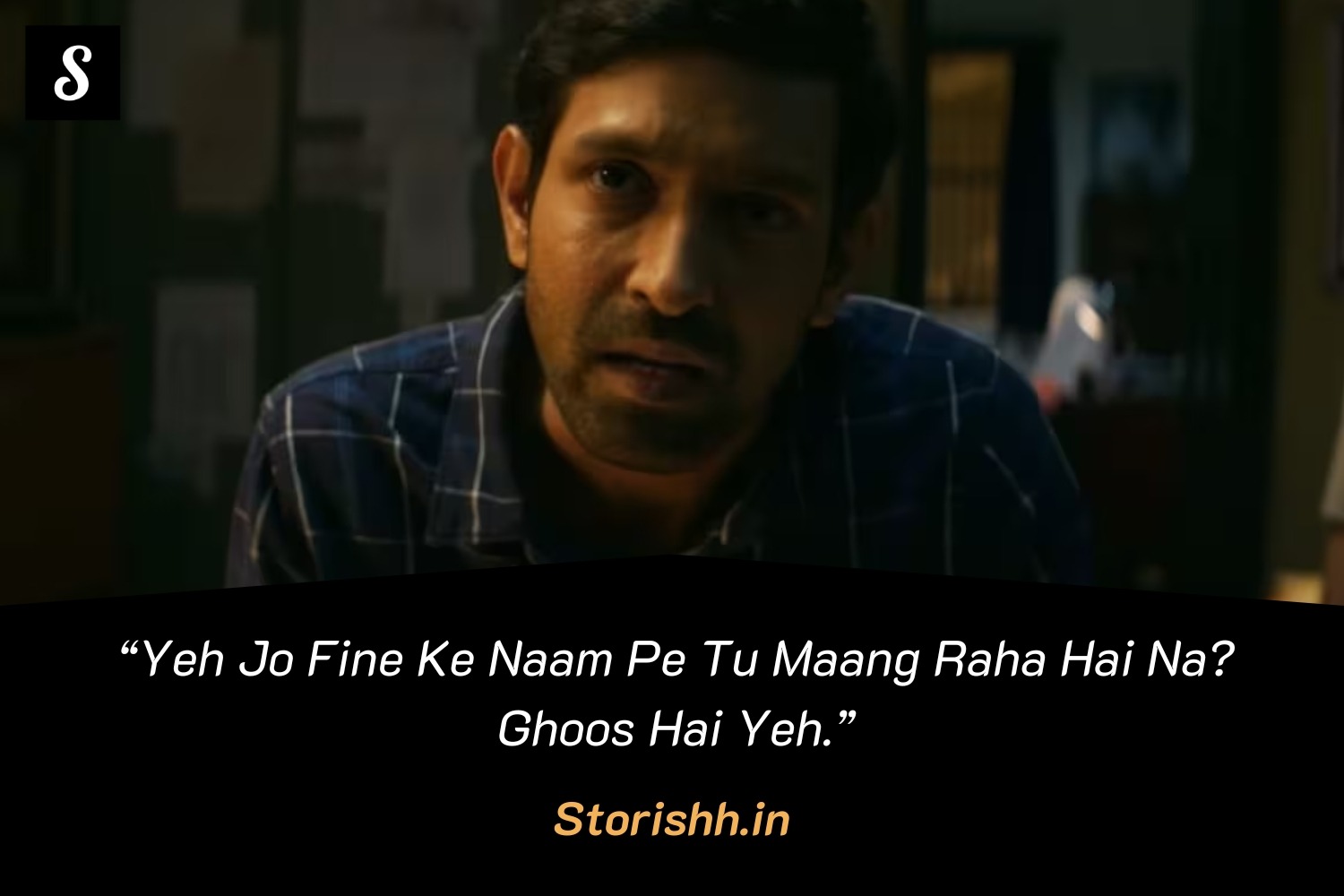
“Yeh Jo Fine Ke Naam Pe Tu Maang Raha Hai Na? Ghoos Hai Yeh.”
We seldom see people be straightforward, we see even fewer when they have the guts to look at the problem without batting an eyelid. In this particular moment, Manoj Kumar Sharma (Vikrant Massey) does not hesitate to confront the corrupt official and simply refuses to comply. He is completely straightforward and is not afraid to call a spade, a spade. This fearlessness is something we can incorporate in our lives too, as it proves the importance of truth and where it can get you.
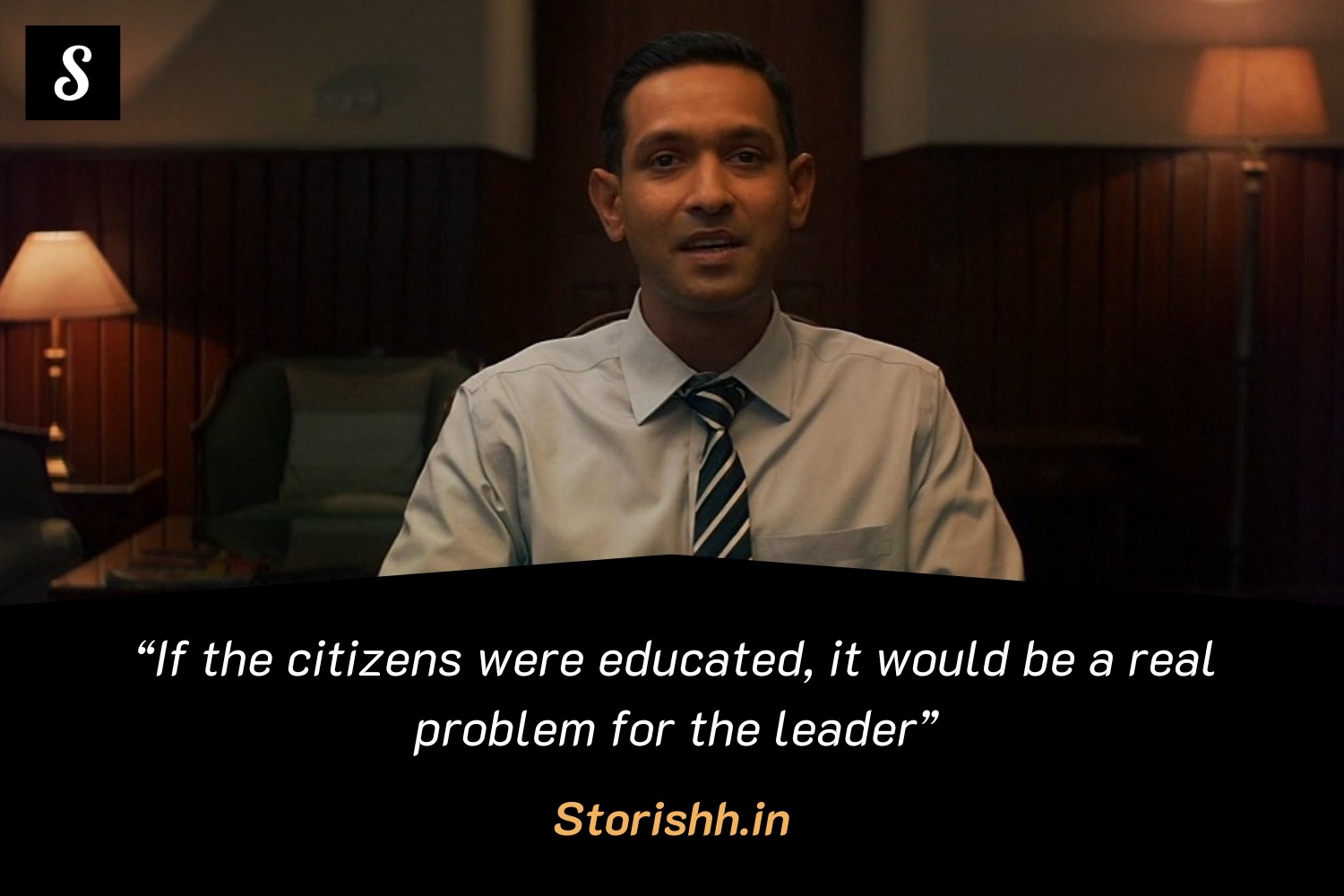
“If the citizens were educated, it would be a real problem for the leader”
A philosopher once said, “The truth might not be documented for any regime to survive”. While Manoj Kumar Sharma is being interviewed, he makes this particular statement. Several institutions prepare students for the UPSC Exam and interview, and it is often advised them to avoid topics that may expose the shortcomings that authorities have. Once again, Manoj speaks his heart out, which helps him clear the interview, for he truly understands the predicament faced by the citizens of this nation.
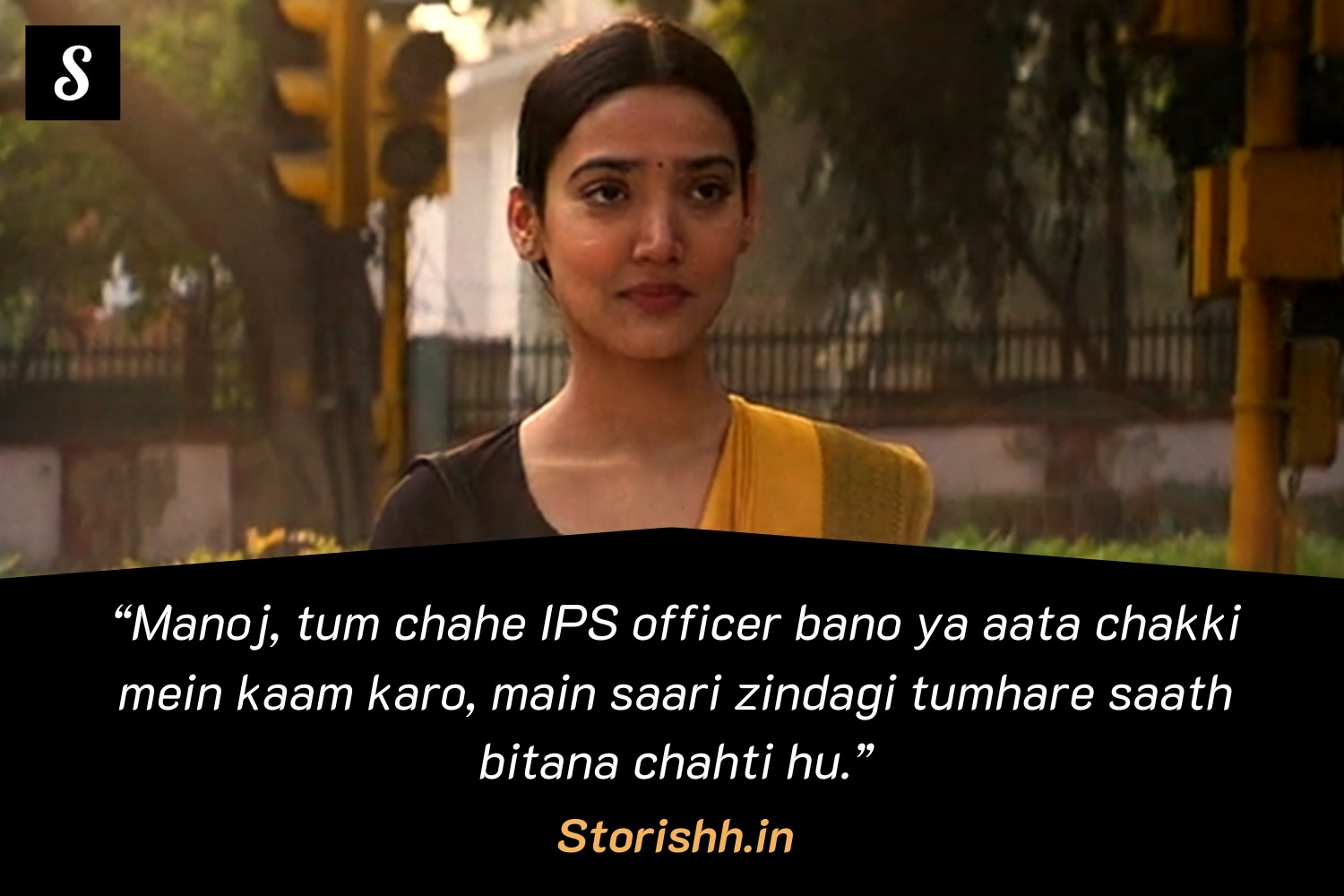
“Manoj, tum chahe IPS officer bano ya aata chakki mein kaam karo, main saari zindagi tumhare saath bitana chahti hu.”
This was one of the most memorable moments of the Disney+Hostar starrer film. It is when Shraddha (Medha Shankar) assures Manoj (Vikrant Massey) that she will always be by his side, no matter what. Sometimes we get really afraid of failure and we assume that our life can never go right again, but it is very wrong to associate failure with life as we have many chances in life and all we need at times is some form of reassurance from our loved ones. Shraddha does exactly that for Manoj.
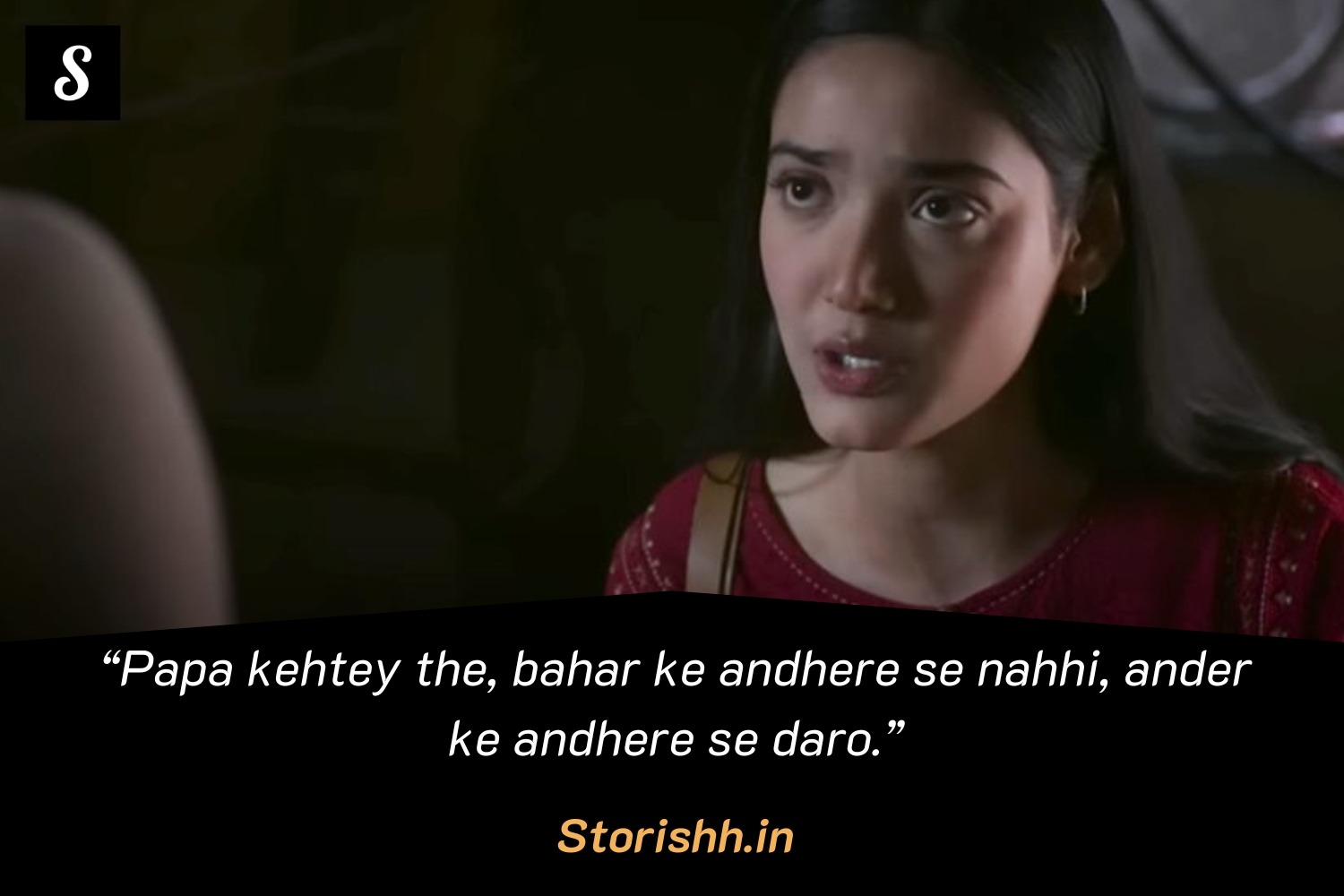
“Papa kehtey the, bahar ke andhere se nahhi, ander ke andhere se daro.”
12th Fail movie had this beautiful moment as well which talks about the darkness that we carry within ourselves. At times, we may be afraid of the dark and we may begin to doubt ourselves and we may be sensitive to the darkness that lies inside us. Here, Manoj reminisces about his father who had once advised him that one should not be afraid of the darkness that exists outside, but one should be very scared of the darkness that exists within.
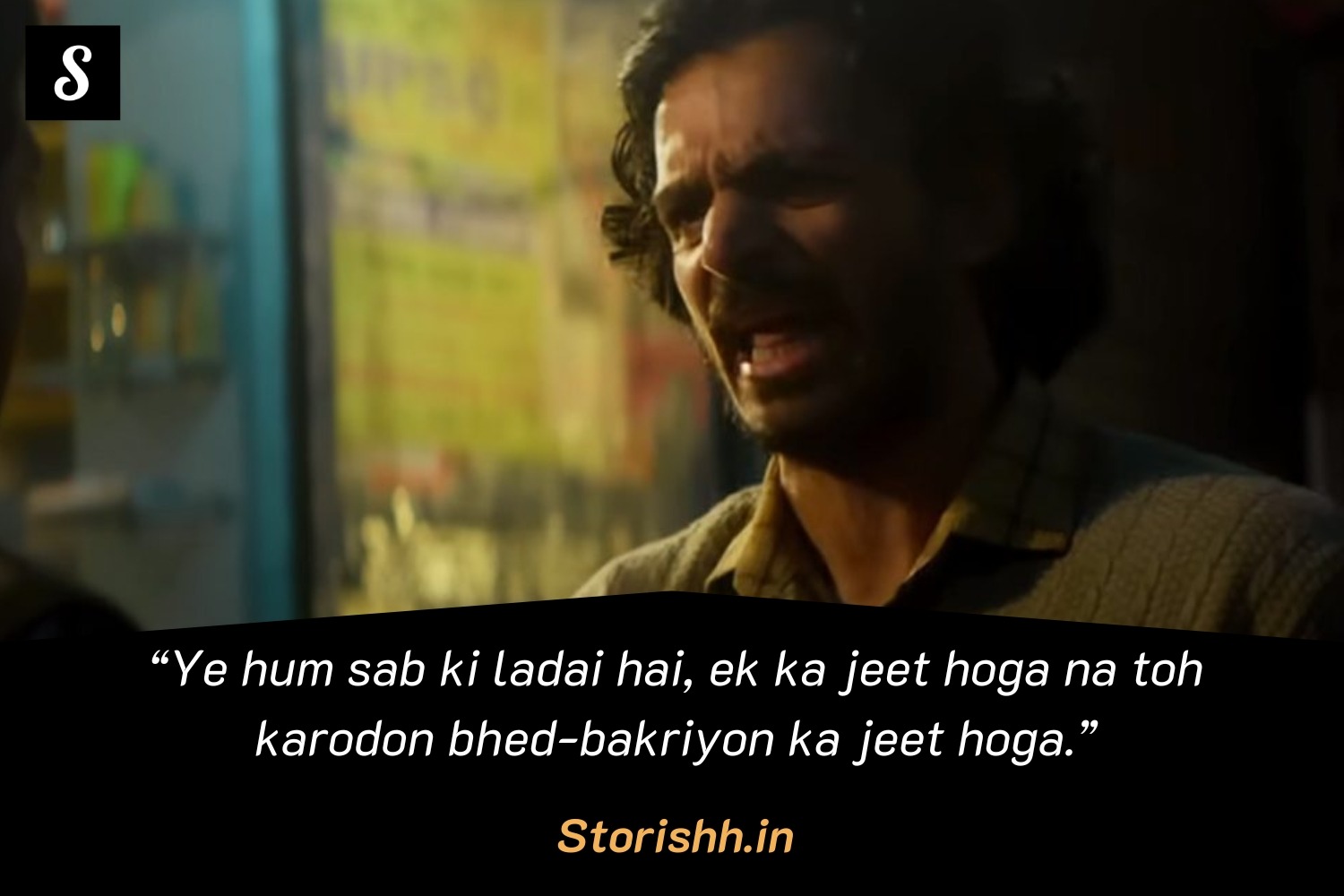
“Ye hum sab ki ladai hai, ek ka jeet hoga na toh karodon bhed-bakriyon ka jeet hoga.”
The key to success is perseverance. It is very easy to give up on things that we desire in life because we find many obstacles in our path to success, but this line emphasizes the importance of perseverance, that we must overcome all obstacles and keep going no matter what because the success of one person motivates thousands of people to take the plunge and dive into the unknown.
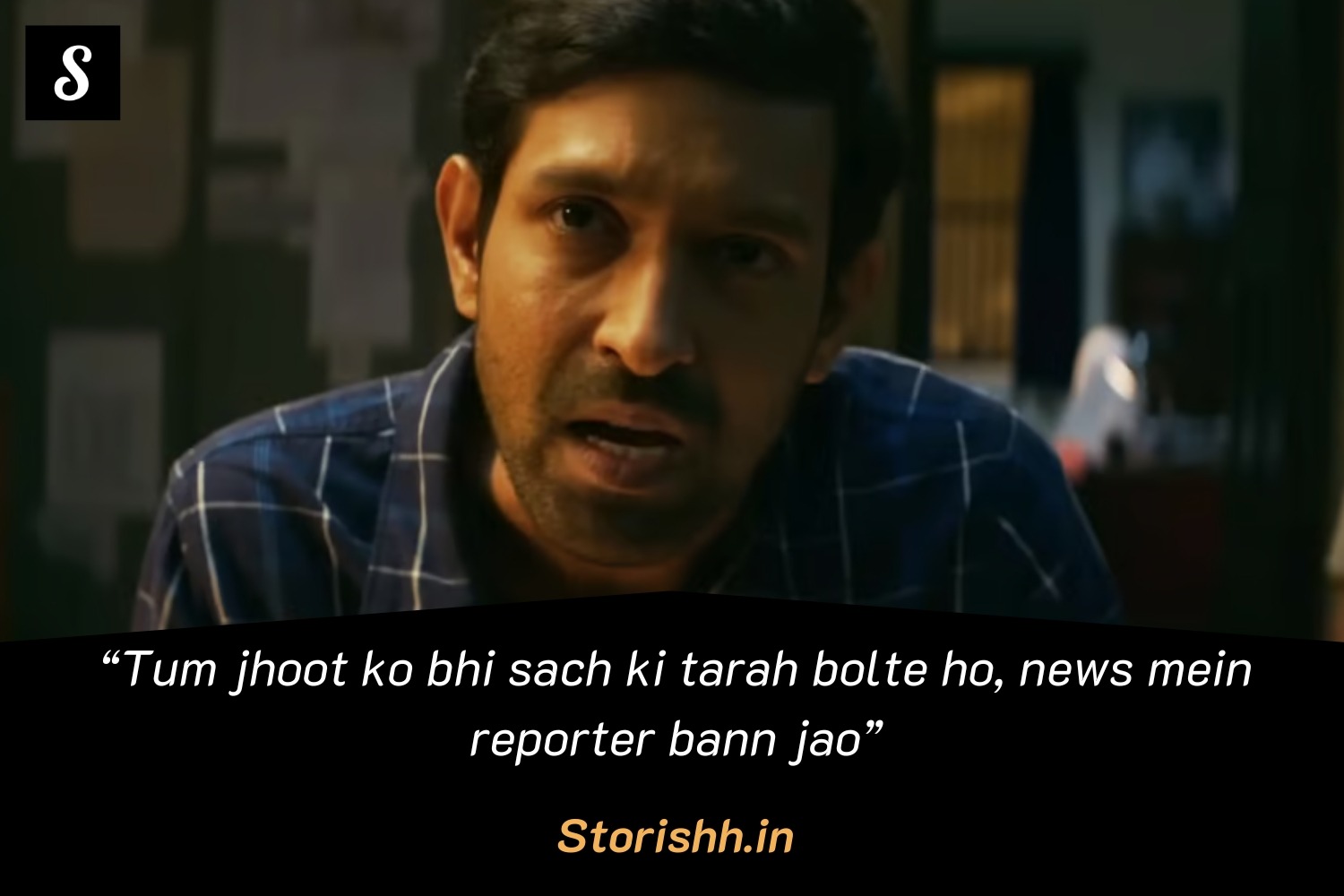
“Tum jhoot ko bhi sach ki tarah bolte ho, news mein reporter bann jao”
The Disney+Hotstar film also takes a sly dig at the reporters. The state of journalism has always been pitiful because they cook up a lot of things that are untrue and are intended for their benefit even if they malign someone else’s reputation. Here, Manoj sums up what a lot of people feel about lies and the state of Indian Journalism.
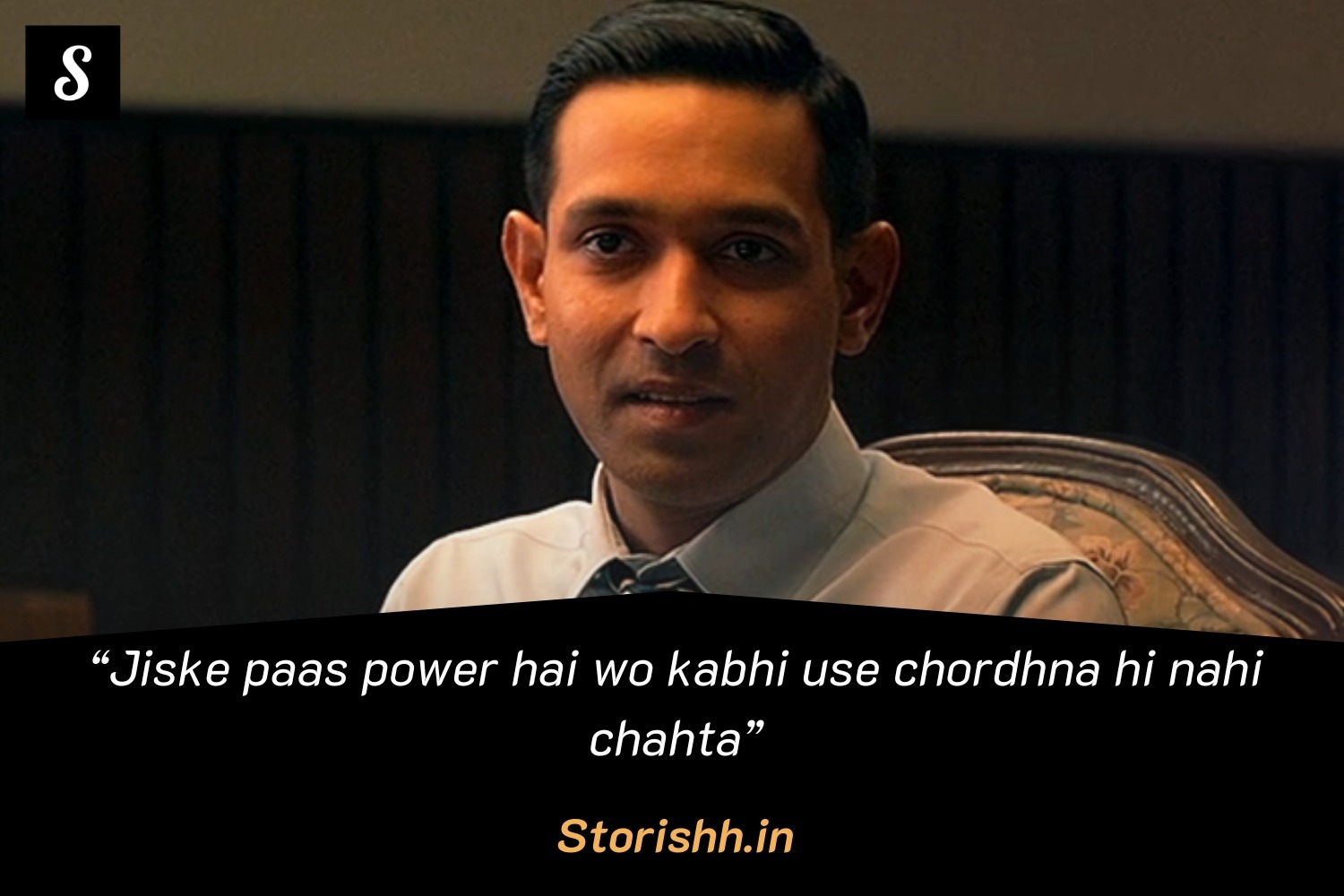
“Jiske paas power hai wo kabhi use chordhna hi nahi chahta”
12th Fail Movie is very introspective too at times. Manoj laments about something which is not only common to India, but it also concerns a wider diaspora. He laments that people in power never want to let go of their position, they always want to hold on to it and they want to keep benefitting themselves to live a lavish lifestyle.
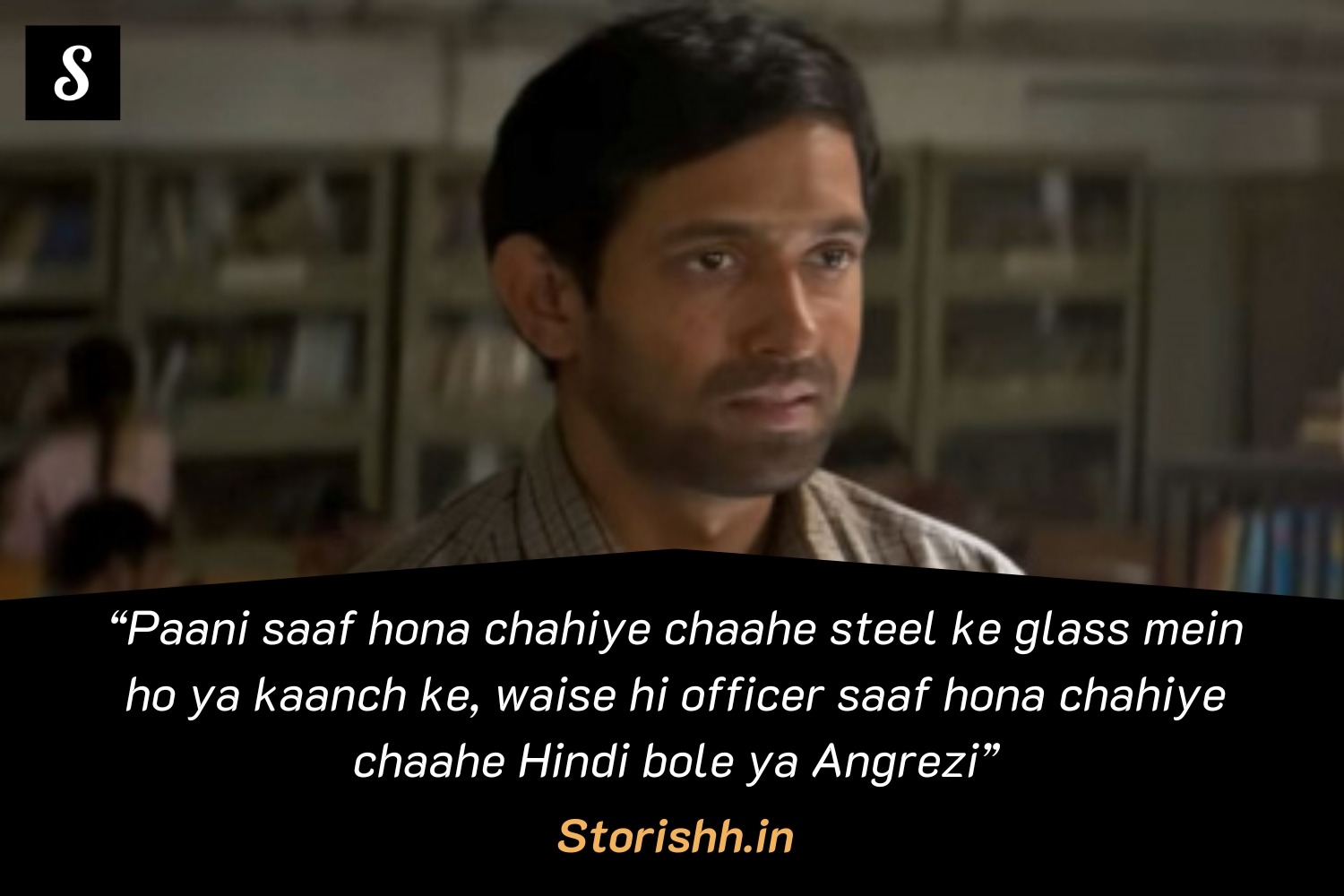
“Paani saaf hona chahiye chaahe steel ke glass mein ho ya kaanch ke, waise hi officer saaf hona chahiye chaahe Hindi bole ya Angrezi”
Manoj draws a very nuanced analogy here, reiterating that one should always work with honesty and that language does not matter in defining a person’s character. He talks about how it is important to drink clean water, it doesn’t necessarily have to be in a steel cup or glass, what matters is the fact that it should be clean.
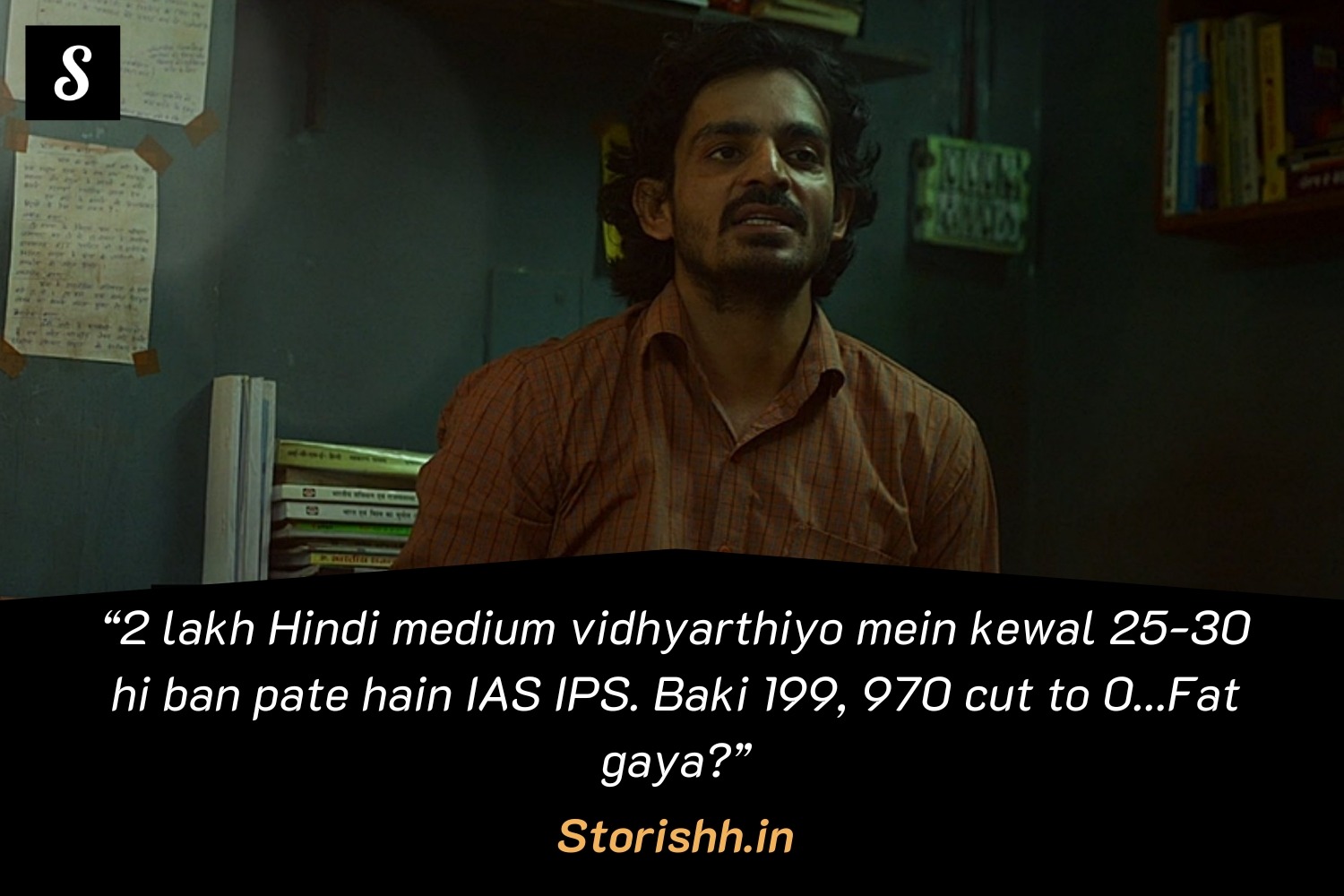
“2 lakh Hindi medium vidhyarthiyo mein kewal 25-30 hi ban pate hain IAS IPS. Baki 199, 970 cut to 0…Fat gaya?”
This dialogue illustrates the unfortunate plight faced by many students in India. The seats are limited and the participation and preparation for those seats are in the thousands. This very fact is enough to demotivate a student to even sit for the exam, but many of them, like Manoj, still take their chances and fight. They break their backs and they work extremely hard to get where they want to be.
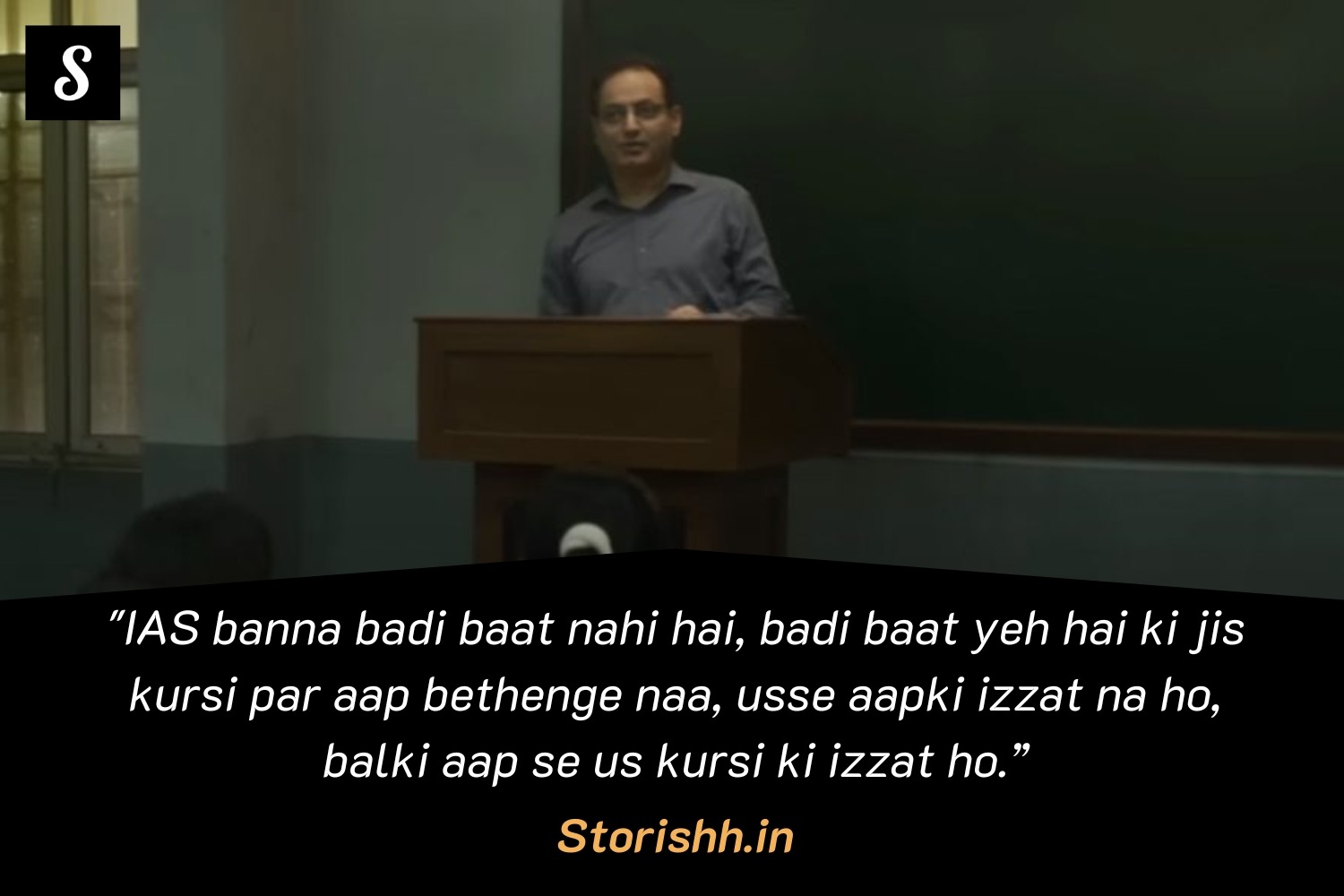
“IAS banna badi baat nahi hai, badi baat yeh hai ki jis kursi par aap bethenge naa, usse aapki izzat na ho, balki aap se us kursi ki izzat ho.”
This dialogue truly captures the essence of the 12th Fail Movie as it sums up the entire journey in two simple lines. What ends up happening a lot of times is that people turn corrupt once they have successfully achieved their goals.
Everyone works hard, while some get to sit on the chair. It is very important to acknowledge the position of privilege that one gets when one gets that chair and it is also important to keep oneself clean, one must strive to add value to the chair and not be enamored by it.
Conclusion
The lines from 12th Fail remain significant because they express the difficulties, self-doubt, and social rejection that many 12th-grade failing students still suffer in the Indian educational context. The film was far ahead of its time in questioning the link between academic merit, skills, and exam results. It illustrates how failure has a significant emotional and monetary effect on middle-class Indian families that lack the necessary resources to cope.
Dialogues
8 Hilarious Dialogues From Teri Baaton Mein Aisa Uljha Jiya

Dialogues from Teri Baaton Mein Aisa Uljha Jiya? Well, let me warn you, you are going to be on a laughter ride!
Teri Baaton mein Aisa Uljha jiya trailer, released sometime back, showcased some of the funniest and most creative dialogues I have come across lately. All set to release on February 9th, this Kriti Sanon and Shahid Kapoor starrer is certainly going to offer some refreshing and bone-tickling nuances (hopefully).
As the trailer appears, Shahid Kapoor falls for a robot, which leads to a series of funny events as the robot meets his family. Well, unlike the nature of robots, the film trailer offered some hilarious dialogue that might make you anticipate the movie. Until the movie hits theaters, here are 8 hilarious and creative dialogues from Teri Baaton Mein Aisa Uljha Jiya To Crack You Up!
Page Contents
8 Hilarious Dialogues From Teri Baaton Mein Aisa Uljha Jiya
Will this pick-up line work, people? I was just asking for a friend, though.

Saari languages bol leti ho, har tarah ka khana bana leti ho, pehli bar cigarette pite ho, to khasti bhi nahi ho. Tum ladki ho ya Aladdin ka chirag?
Did Green Card just win over Sanskaar??
–Hi, Sharmila.
– Ye mujhe naam se kyu bula rahi hai?
– Mummy ye America se hai na.
Real ID se aayo Kokila Ben

Ye is ghar ki nayi member Harami bahu…….Hamari bahu!
This is my family, and every time my social battery runs out

– Sifra? Sifra?…… Mausi isko doctor ke pass leke chalte hai.
– Iski battery dead hai, time lagega charge hone me.
It’s funny but kind of stereotypical, just saying
– Naam bolo jii.
– Sifra.
– Pura naam?
– Super Intelligent Female Robot Automation.
– South se ho aap?
Me, in every situationship, I just fall for red flags, not robots, bas.

Mere mann me Sifra ke liye feelings develop ho gayi hai aur ye janne ke baad bhi ki wo robot hai wo jaa nahi rahi
Also, read:
10 Best Dialogues From Dream Girl 2 That’ll Surely Crack You Up
Well, seems like the film might!
– Aaj to lag raha hai pure Delhi me aag laga degi.
– Kya aap chahti hai ki main pure Delhi me aag laga du?
If this made you laugh out loud, here’s the trailer for another round of laughter!
Make sure you drop by the theatres on 9th February to unveil this robotic rom-com!
Also, let us know in the comments below which dialogue you laughed at the most!
Dialogues
9 Powerful Patriotic Bollywood Dialogues To Infuse Patriotism

Powerful patriotic dialogues to capture the spirit of India and the joy of Republic Day! Share your favorite lines in the comments, and let’s celebrate together! Maa tujhe salaam! These voices echo through history!
Page Contents
9 Powerful Patriotic Bollywood Dialogues To Infuse Patriotism
Holiday: A soldier is never off duty
“Jab wahan border par log apni neend ki parwah kiye bina jagte hain, tab tumhein yahan sheher mein chain ki neend aati hain.”
Chak de! INDIA

“Mujhe states ke naam na sunayi dete hain na dikhayi dete hain, sirf ek mulk ka naam sunai deta hai… INDIA”
Also, read:
9 Underrated Indian Patriotic Movies To Watch On Republic Day
Raazi

“Watan Ke Aage Kuch Bhi Nahi, Khud Bhi Nhi”
URI: The Surgical Strike

“Yeh Hindustan ab chup nahi behtega … yeh naya Hindustan hai … yeh ghar mein ghusega bhi aur maarega bhi”
Mangal Pandey- The rising

“ Yeh azaadi ki ladai hain, guzre hue kal se azaadi… aane waale kal ke liye”
Border

“Shayad tum nahi jaante … yeh dharti sher bhi pehda karti hai”
Bang Bang

“Joh desh ke liye ladte hai … unki maut ka countdown unki pehli saans ke saath shuru ho jaata hai.”
WAR

“Jung joh hai na, shaheed hokar nahi … dushman ko shaheed karke jeeti jaati hai”
Shershaah

“Ek fauji ke rutbe se bada koi aur rutba nahi hota, vardi ki shaan se badi koi aur shaan nahi hoti, aur apne desh se bada koi dharam nahi hota.”
Dialogues
5 Legendary Dialogues From Bambai Meri Jaan Web Series

Amazon Prime Video is all set to release a nail-biting thriller this September. The story, casting, and dialogues from Bambai Meri Jaan web series are all just bang on. It has moral conflicts, family drama, awesome action sequences, and some romance that will make it a promising show you can’t help but binge. The 10-episode series also has some top-notch actors and is set in the lanes of 60s Mumbai.
Read on to find out how the dialogues from Bambai Meri Jaan series capture the bigger picture and manage to go beyond the characters and their journey.
5 Legendary Dialogues From Bambai Meri Jaan Web Series

Qainaat ka nizaam hai, burai bhi achchhai se paida hoti hai.
This one of the legendary dialogues from Bambai Meri Jaan web series talks about good and evil, the battle between them. We all bet on the victory of good over evil. The struggle is as old as we can remember. Legends talk about how humans have both good and evil in them, and it is up to them to choose what they lean towards. For some people, though, the choices aren’t black and white.
Because, more often than not, the lines between these are too blurry. Many of the show’s characters – as you would know from the many dialogues of Bambai Meri Jaan – are walking these blurred lines – choosing their good and their evil.
Also, read:
Pre Review Of Bambai Meri Jaan Web Series’s Gangster Saga

Shaitaan ko bhi uparwaale ne paida kiya tha.
We are all a creation of the cosmic events of this universe. The morals tell us the difference between the good and the bad. What it doesn’t tell us, however, is that they are the head and tail of the same coin.
Some choose a skewed path to get to the ultimately good intention, and some people do the reverse. So, yes, just as the universe makes the good, is the evil.

Sheher saaf karte karte, mera ghar ganda ho gaya.
The dialogues in Bambai Meri Jaan series never fail to point towards the internal dilemma of the various characters, the central conflict being that between a father who’s a man of integrity and morals and his son, deep into the underworld. Nothing highlights the inner turmoil better than this one dialogue. You know the show will be great the moment you hear Kay Kay Menon say this in the trailer.

Har faisle ki ek keemat hoti hai, aur wo keemat isi zindagi mein chukani padti hai.
You know when we are told to choose wisely? We need to weigh our options before we make an important decision. This may be why. A young man lifts a dead body as we hear a woman’s voice utter these words. So, while the series is about the rise of a gangster and is filled with considerable gore and action, it does not, at any point, fail to shed light on the consequences of one’s actions.
While the mafias and the goons take over the city of Mumbai, the makers also show what wrath that might bring upon them or their loved ones.

Jo tune aag lagai hai na Dara, jehunnum ki aag hai, hum sabko jala ke raakh kar degi.
While the plot is a lot about the underworld and how they fight amongst themselves and with the police to get control over the city to spread terror, it will also have some beautiful character arcs.
Bambai Meri Jaan web series has dialogues that hit just the right spot, like a father telling his son about Karma and how it gets everyone in the end—or just exploring this father-son relationship built on completely different sets of beliefs of the two.
So, buckle up and prepare for some thrill, drama, and action this September 14th on Amazon Prime Video.
For more such interesting content, follow us on Instagram and Facebook.

 Entertainment2 years ago
Entertainment2 years ago18+ Series That You Undoubtedly Should Not Watch With Your Family

 Entertainment2 years ago
Entertainment2 years agoTop 10 Indian Hot Web Series That Will Raise The Temperatures

 Entertainment2 years ago
Entertainment2 years ago10 Adults Only Ullu Hot Web Series

 LGBTQ+8 months ago
LGBTQ+8 months ago8 Bold and Unapologetic Indian Gay Web Series

 Recommendations2 years ago
Recommendations2 years ago10 Best Anime Movies In Hindi By Studio Ghibli

 Entertainment1 year ago
Entertainment1 year ago10 Quotes That Make Farzi Web Series Iconic

 Nostalgia3 years ago
Nostalgia3 years ago90s Snacks Of India That We Will Probably Never Eat Again

 Entertainment1 year ago
Entertainment1 year ago5 Hande Erçel Dramas In Hindi On YouTube


